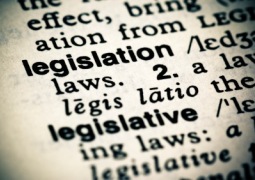
Parliament, Monday, 5 June 2023 – The Portfolio Committee on Basic Education concluded the Northern Cape leg of the public consultation process on the Basic Education Laws Amendment Bill in Kimberley yesterday with residents of the greater Frances Baard District Municipality voicing contrasting views on the management of learners’ pregnancy as proposed by clause 41 of the Bill.
The committee has now successfully completed public hearings in eight provinces and is satisfied with the quality of inputs it received thus far, and it is of the view that the principles of participatory democracy were maintained in all the provinces it conducted public hearings on the Bill.
The Bill received mixed views from residents in Kimberley particularly on clauses 37 and 41 of the Bill. Those against the Bill were of the view that it denies parents their right to make decisions about their pregnant children, something they believe is their constitutional and devine right. Also, some were of the view that teachers will be allowed by the Bill to keep the details of pregnancy of learners secret from their parents although a pregnant learner needs support from her family.
Those in support the Bill were of the view that the basic education system is facing a serious challenge regarding learner pregnancy and clause 41 seeks to legislate learner pregnancy in line with the existing legislation as per the Bill of rights which clearly stipulates that no one should be discriminated against. They underscored that this clause is necessary to close gaps that exist on the management of leaner pregnancy.
Furthermore, they argued that there are disparities in clause 37 of the Bill. Those in support of the Bill suggested that the regulation of home-schooling is necessary to ensure adherence to specific standards. Also, participants highlighted that the fear around home-schooling was misplaced because according to them the clause did not do away with home-schooling but advocated for the registration because government has a responsibility to know if children have access to quality education.
Those who rejected the Bill raised concerns that the Bill will force the Curriculum Assessment Policy Statements assessment standards on home-schooling something that ends the flexibility of the system. Parents within the home-schooling system urged the department to go back to the drawing board, to consult extensively in the home-schooling environment and home school organisation. They also called for international benchmarking against home-schooling systems abroad to ensure the delivery of an appropriate legislation.
There was also contestation regarding clauses 4 and 5 of the Bill which deal with the language and admission policies. Those in support of the Bill asserted that the Bill is long overdue to address the principles of equality, access, redress and transparency because there was a gap in the current legislation. In line with this, according to supporters of the Bill, the Bill will resolve the arbitrary exclusion of learners through these policies.
They also argued that the Bill compels the Head of the Department of Basic Education to make rational decisions in making language and admission policies. Those against the Bill were of the view that the centralisation of power is bound to create problems within the system and that School Governing Bodies remain the ideal structures to make decisions on language and admission policies.
Some teachers during the public hearings cautioned against clause 2 (c) on the grounds that the clause has an inherent risk of undermining the rights of employees to participate in a protected strike action. They argued that there are sufficient laws pertaining to criminal conduct and violent protest and the Bill should recognise that.
Meanwhile, the participants were unanimous in their rejection of clause 8 of the Bill that deals with the possession, consumption or sale of liquor in school premises. The committee will in the coming weekend conduct public hearings on the Bill in the Eastern Cape to conclude the nation-wide public participation process.
ISSUED BY THE PARLIAMENTARY COMMUNICATION SERVICES ON BEHALF OF THE CHAIRPERSON OF THE PORTFOLIO COMMITTEE ON BASIC EDUCATION, MS BONGIWE MBINQO-GIGABA
For media enquiries or interviews with the Chairperson, please contact the Committee’s Media Officer:
Name: Malatswa Molepo (Mr)
Parliamentary Communication Services
Tel: 021 403 8438
Cell: 081 512 7920
E-mail: mmolepo@parliament.gov.za

